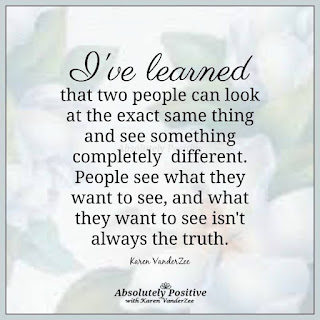We Accept the Love We Think We Deserve
“Why do nice people choose
the wrong people to date,” asks Charlie. Mr. Anderson pauses briefly, then
responds, “Well… We accept the love we think we deserve.”
The Perks of Being a Wallflower, 2012
The film The Perks of Being a Wallflower is
all about people (high schoolers to be exact) who think they don’t deserve
love. Charlie, Sam, Patrick, Mary Elizabeth, Brad, Ponytail Derek: None of
these people think they are deserving of real love.
Charlie was sexually abused as a child by his Aunt Helen. She
died in a tragic car accident as she was on her way to buy five year old Charlie
a birthday present. He blames himself for her death and for the fact that she
abused him. Sam was also sexually abused as a child by her father’s business
partner. Since that time she has accepted sex from every creep who would have
her.
Patrick is Sam’s gay
step-brother. It’s the 1980s and being gay isn’t as acceptable as it is today.
Patrick is bold enough to be himself, but he learns many hard lessons about how
unacceptable he is as a gay person in 1980s American society. He hooks-up with
Brad, who’s one of the stars on their high school football team. Brad’s father
catches the two of them making-out in the basement one night, and nearly beats
his own son to death. Brad won’t accept Patrick’s help against his father,
though: He doesn’t think he’s worth it. He apparently thinks he's bad for being gay and that he deserves to be beaten to a pulp by his father.
Many people who suffer from codependent behaviors had
childhoods similar to the characters in The Perks of Being a Wallflower. In
one way or another, we were abused as children and made to believe that we were
the bad, unacceptable ones. We grow up and we are all “nice,” good people, but
we don’t believe we are. We still believe that we are defective, unacceptable
and unlovable. We still believe the abusive lies that were told to us as
children. And some of us still suffer from the scars of mental, emotional,
physical and sexual abuse. These scars make us feel even less deserving of the
healing love of healthy people.
And so what becomes one of our primary adult patterns of
behavior? We only accept the love we think we deserve. As teen-agers in high
school, just like the characters in the film, many of us either didn’t date at all, or
we accepted dates from people who abused us. It’s all we believed we deserved. Those of us who never dated in high school stayed wallflowers for a reason. We believed no one could possibly want us
and we weren’t even thrown any crumbs of acceptance. Others of us were thrown
crumbs from people who were as broken inside as we were, but who had chosen to
become perpetrators of the abuse that they had received. So we accepted their crumbs
of attention, and we allowed them to abuse us over and over again. When they
choose to throw us away, we then looked for the crumbs offered by another abuser.
Why? Because we only accepted the “love”—actually the hatred—that we thought we deserved.
In the scene between Charlie and Mr. Anderson (his English
teacher) that I quoted above, Charlie follows-up his first question (“Why do
nice people choose the wrong people to date?”) with a second one: “Can we make them know that they deserve more?”
And Mr. Anderson replies “We can try.” There's some truth to Anderson's answer, but it rides on two things: First, we need to be able to help ourselves before we can help anyone else; and Second, the other person has to be willing to help him/her self first before we can do anything at all to help him/her.
Charlie sees how Sam is abusing herself by dating all of the
wrong men. He wants to rescue her, and yet, he can’t even begin to rescue
himself at this point. It’s odd how each of the characters in this movie can SEE
how the others are abusing themselves and allowing themselves to be abused. BUT
THEY CAN’T SEE THIS IN THEMSELVES. They all want to rescue each other and yet
each of our rescuers can’t begin to see that they, too, need to be rescued.
They each need to rescue themselves from their own self-destructive behavior.
If you are still abusing yourself by accepting the “love” you
think you deserve, and that “love” is really abuse, you need to open your eyes
now. No one deserves abuse. Everyone (no exceptions) deserves real love. But we
are the ones who have to change, not the abusive people we have chosen to
subject ourselves to as adults. We have to change inside and we have to decide
that we are worthy of proper, respectful treatment by others. Abuse is NOT
LOVE. Once we decide we are worth the BEST, we will begin to seek out people
who offer us total acceptance for being ourselves and real, unconditional love.
At this point in our recovery, we will choose to accept the love we think we deserve;
but it will be GENUINE love; and we will be free to rejoice!




Comments
Post a Comment